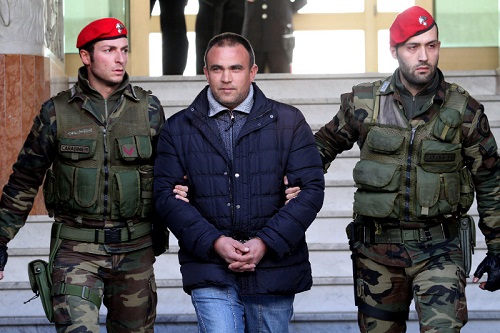AP photo
By
Ricardo Swire
The Ndrangheta Mafia based in Calabria, located in the toe of Italy, operates similar to “La Cosa Nostra” in Sicily or the “Camorra” in the Campania district with Naples as capital. Patterns showed such Mafias function independently and manage drug shipments, commercial enterprise, public contracts, extortion, prostitution and arms trafficking across Italy. The Ndrangheta’s crime component alone generates approximately £40 billion annually.
The criminal titan amasses corporate volume from ownership of banks, shopping malls, construction companies, supermarkets and nightclubs. The Ndrangheta’s net worth is approximately three percent of Italy’s Gross Domestic Product (GDP). It subtly advertises expertise in politics, finance and construction. As of 2013 the Ndrangheta imported eighty percent of Europe’s cocaine supplies from Colombia and Mexico. Consignments travelled via the Port of Gioia Tauro, Italy’s largest maritime container facility.
In the 1990s European Union (EU) grants valuing £33million assisted the Port of Gioia Tauro’s transformation to a facility with international drug shipment handling capability. As Sinaloa Cartel partners, the Ndrangheta Mafia distributes cocaine to America, Australia, Canada, Germany and Switzerland. Unlike other traffickers the Italian crime syndicate does not pay for cocaine shipments in advance. Extended courtesy is after the agreed drugs arrive and distribution complete payment is remitted.
Colombian and Mexican Cartel suppliers consider the Ndrangheta Mafia an “equal opportunity” partner. On December 5, 2018 “Operation Pollino” probed complex money laundering schemes conducted by two targeted Ndrangheta Mafia owned restaurants located south of the Netherlands. Dutch Fiscal Information & Investigation Service (FIOD) data indicated that such activities were extensions of fraud, international drug trafficking and money laundering. Offenders were a Ndrangheta splinter group known as the Pelle-Vottari Clan.
The criminal entity’s billion Euro business smuggled several two hundred kilo cocaine consignments from Brazil, Guyana and Colombia to Rotterdam and Antwerp. Operation Pollino’s multinational taskforce of Italian, German, Belgium and Dutch police detained the Pelle-Vottari Clan’s twenty-six year old leader and eighty-nine conspirators. One hundred and forty kilos of XTC pills and three hundred kilograms of cocaine were seized.
Such product was either sourced directly from Latin America or purchased from Turkish traffickers headquartered in Germany. Dutch police also conducted searches in Suriname. Pelle-Vottari Clan operatives in Guyana registered local company “Unique Timber” as a legitimate wood exporter. The front company was used to smuggle cocaine shipments from the Port of Georgetown to the Ports of Antwerp and Rotterdam. Importer “Rigano Im-& Export GmbH” based in Heimstraße, Germany, received multiple loads of ‘product” from the Guyanese company.
Rigano Im-& Export GmbH additionally received shipments of cocaine hidden in charcoal, from Colombian company “Comercializadora Yotor SAS” based in the Port of Barranquilla. In 2016, after the Pelle-Vottari Clan boss father’s apprehension, Operation Pollino officers secretly installed a “Trojan” on the heir’s Blackberry phone and recorded implicating conversations. For two years Operation Pollino’s electronic surveillance exposed how the Pelle-Vottari Clan smuggled a minimum of one point seven metric tons of cocaine to Calabria in Italy.
During a similar time-frame the Ndrangheta offshoot trafficked eight hundred kilos of cocaine to the Netherlands. Digital evidence outlined methods used by Café La Piazza, an ice cream parlour in Bruggen Germany, to clean Pelle-Vottari Clan cash. La Piazza 3, another restaurant in Bruggen, was an alternate cash cleaner. Italy’s Financial Police, Counter-Narcotics Group, found these two restaurants added to the Leonardo da Vinci restaurant in Wesseling town Cologne, Germany, as Pelle-Vottari Clan’s three main logistics and money laundering headquarters.
Ricardo Swire
Ricardo Swire is the Principal Consultant at R-L-H Security Consultants & Business Support Services and writes on a number of important issues.



No Comments Yet!
You can be first to comment this post!